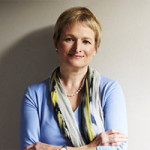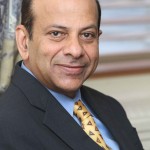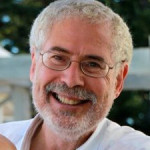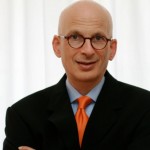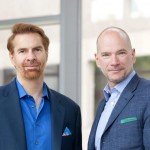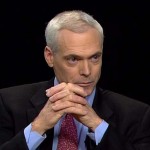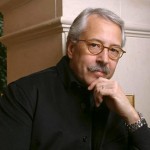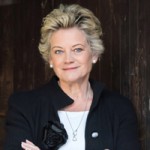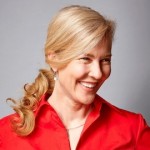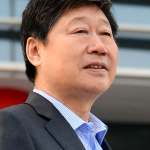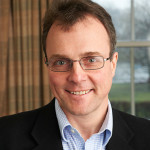Gamechangers: How to create innovative strategies for business and brands in a fast changing world
Download my keynote Gamechangers Switzerland
Across the world, new ideas, new businesses and new solutions are transforming every market. “Gamechangers” think and act differently. They innovate every aspect of their brand and marketing. From Alibaba to Zipcars, Ashmei to Zidisha, Azuri and Zynga, a new generation of businesses are rising out of the maelstrom of economic and technological change across our world. These are just a few of the companies shaking up our world.
Gamechangers are disruptive and innovative, start-ups and corporates, in every sector and region, reshaping our world. They are more ambitious, with stretching vision and enlightened purpose. They see markets as kaleidoscopes of infinite possibilities, assembling and defining them to their advantage. They find their own space, then shape it in their own vision. Most of all they have great ideas. They outthink their competition, thinking bigger and different. They don’t believe in being slightly cheaper or slightly better. That is a short-term game of diminishing returns.
Who are the Gamechangers Switzerland 2017?
Top 10 Nominations for Gamechangers Switzerland 2017 (independently nominated online):
- ABB: leading the way in robotics, alongside power and automation
- Airlight Energy: production and storage of solar energy
- Geberit: design leader in bathrooms and toilets
- Hublot: Swiss watch making gets a yin-yang twist
- Knip: digital insurance navigator that simplifies its users’ life
- LESS (Light Efficient SystemS): ultra bright alternative to LEDs
- Lindt & Sprüngli: Swiss chocolate, most famously the Lindor balls
- Nestle (including Nespresso): food to packing and business models
- Roche (including Genentech): the future of personalised medicine
- UBS: presenting investment portfolios with virtual reality
Peter started the Gamechangers project by asking 1000 business leaders to nominate the companies who they believe are creating the future in each different sector. The top 100 innovators are big and small, spread across every sector and continent, from Asia to the Americas, finance to fashion. And then we wanted to understand what they did differently.
They range from well known innovators like Amazon and Apple – the magic Dash buttons creating a direct link between consumer and brands, the ecosystems that go beyond devices – to new brands like Brazil’s Beauty’in fusing the world of food and cosmetics, or even Zespri redefining the obscure Chinese gooseberry as the superfood Kiwi fruit.
They capture their higher purpose in more inspiring brands that resonate with their target audiences at the right time and place, enabled by data and technology, but more through empathetic design and rich human experiences. They fuse digital and physical, global and local, ideas and networks. Social media drives reach and richness, whilst new business models make the possible profitable. They collaborate with customers, and partner with other business, connecting ideas and utilising their capabilities. They look beyond the sale to enable customers to achieve more, they care about their impact on people and the world, whilst being commercially successful too.
As they say in the GoogleX moonshot factory, in seeking to reinvent everything from cars to healthcare, “Why be 10% better, when you could be 10 times better?”
Example topics
Kaleidoscope World … Making sense of fast changing markets to find the best new opportunities locally and globally.
Key concepts
- Change drivers, global trends and new opportunities
- Exploring the new customer expectations and aspirations
- Thinking bigger, thinking different, 10 times not 10%
- Emerging markets, powerful millenials, and new women
- Winning in an ideas economy – outthinking your competition
- So how could you change the world? Exploring the 10 themes
New insights
- Aeromobil – the flying car from a little town in Slovakia
- Li and Fung – the Hong Kong business that can do anything
- Google X – driverless cars and free wifi from the Moonshot Factory
- 23andMe – DNA profiling for $99 changes the future of healthcare
- Zespri – redefining your market in your own vision, words and rules
- Corning – industrial manufacturing is about people and emotions too
Distruptive Innovators … Learning from the next generation of business and brands, to drive innovation and growth
Key concepts
- The world’s 100 most disruptive businesses and brands
- The future of banking, technolodgy, retail, healthcare and more
- Why fast speedboats will beat the big supertankers
- Being digital and physical, to create reach and richness
- Designing new business models, including 36 new templates
- Driving innovation, that disrupts and transforms markets
New insights
- Airbnb – the sharing economy beats the old economy
- Juan Valdez – better than Starbucks with local authenticity
- Nespresso – the power and profitability of new business models
- Tesla – harnessing technology to make life better
- Umpqua Bank – learning from anywhere but your competitors
- Xiaomi – from start-up to global superstar in three years
Winning Strategies … Creating innovative strategies to outthink the competition and shape markets in your own vision
Key concepts
- Building brands that are inspiring, collaborative and enabling
- Combining big data with big ideas to focus and engage people
- Telling stories, through liquid and linked content that keeps moving
- Real time marketing, that is fast and personal, real and believable
- Creating richer customer experiences, about customers not products
- Building communities that connect and mobilise people
New insights
- GE – connecting the ideas of B2C to B2B businesses
- Jonny Cupcakes – turning t-shirts into a richer experience
- Nike+ – its not about the shoes, its how fast you can run
- Periscope – inspired by revolution, how new ideas go viral
- Rapha – building clubs and communities around people and passion
- Threadless – being a little crazy, and more loved, in a changing world
Be the Gamechanger … how you can drive innovation, change and growth … how will your change your game?
Key concepts
- Where to start – where you’re a big company or small company
- Building your momentum – finding ways to accelerate growth
- What leaders do – the new role and rules for effective leadership
- Changing your brain, to change your game
- Getting started with the Gamechangers Toolkit
- Q&A
- Being bold, brave and brilliant
Whilst the X-day is only a 25 minutes snapshot, the full program is available as a high energy, inspiring and practical workshop … One Amazing Day
The workshop will be incredibly inspiring, high energy, and also very practical. It will combine learning from the best new businesses across the world, but also applying the most important insights and ideas to the challenges of your own business. Every participant will leave the day with
- Your own Gamechanger Plan to apply to their business
- Your own Gamechanger Toolkit for practical action
- Your own Gamechanger Playbook with their best ideas
Explore more of the videos, articles, books and more from Peter Fisk at www.theGeniusWorks.com
Are you ready to change your world?
What are the best new ideas for business leaders?
Download The Best Ideas in Business – Summary of the 50 Thinkers and 50 Ideas
Download The New Business Agenda – Summary of the 6 Ideas Curation Projects
How have the rules of business changed? The concepts of strategy and innovation, the ways to engage and lead your people, the most effective ways to organise and deliver, and most of all, how to be the most effective business leader.
It’s probably 20 years (or more) since you went to business school? Think how the world has changed in that time … customer expectations, digital technologies, global markets, millennial mindsets …
Peter Fisk explores what it takes to lead and win in today’s digital, disruptive and dramatically-changing environment … a business world that is being shaped by innovators from Jack Ma to Elon Musk, enabled by ideas from blockchain to gene editing, and delivered by brands as diverse as 23andMe and Xiaomi.
We look back at where business ideas have come from. But then consider which ideas are still relevant, and which are most important in today’s digital, disruptive world:

We will learn from the world’s top ranked business gurus, according to Thinkers50, and focus on what are their best ideas – why they matter, how they connect, and what they means for you.
Peter will also give you a sneak preview of the the incredibly exciting plans for the Thinkers50 European Business Forum coming to Odense in partnership with Deloitte on 9-10 May next year featuring Michael Porter delivering the European Business Lecture 2017, and many more of the world’s top gurus.
Who are the world’s top 50 business thinkers?

#1: Michael Porter
“The Davos of Business Thinking” for Europe’s Business Leaders. 9-10 May 2017
The European Business Forum brings together Europe’s top business leaders and the world’s top business thinkers to explore the big issues and best ideas in business, to build new relationships, and inspire winning leadership:
- What is the new agenda for Europe’s business leaders?
- How to drive smarter innovation and faster growth?
- Where to focus today, to win in the future?
Markets of relentless change, exponential technologies, social and political uncertainty, challenge every business leader. Ideas can change the world, but making the right choices is not easy. To help us, we bring together:
- The world’s #1 business thinker, Professor Michael Porter
- The world’s #1 business leader, Lars Rebien Sørensen
- The world’s #1 leadership coach, Marshall Goldsmith
Odense, birthplace of Hans Christian Andersen and one of Europe’s new tech hubs, is a perfect place to create the future. We call it “the Davos of business thinking”, two days of the very best ideas, business networking, and focus on practical action.
- Inspiring thinkers from top business schools, including Harvard and INSEAD
- The Odense Moonshot, the big ideas to shape business in 2018 and beyond
- Exponential Lab, how to lead for exponential growth by Singularity University
- 2017 European Business Lecture, setting the agenda for business in Europe.
Thinkers50 curates the world’s best management ideas, constantly looking for the new, disruptive, practical concepts that transform business and markets, to drive innovation and growth, through better organisations and the best leadership.
- Creating a bold new agenda for business, from new technology to social progress
- Making sense of the new order, migration and populism, robots and humanity
- The best new approaches to strategy, innovation, projects and leadership
This is no usual event. It will be stretching, provocative, interactive, collaborative, and inspiring. Key speakers include:
- Michael Porter, world’s #1 business thinker, Harvard professor of strategy
- Lars Rebien Sørensen, world’s #1 business leader, former CEO of Novo Nordisk
- Marshall Goldsmith, world’s #1 leadership coach, and author Triggers
- Rita McGrath, the world’s leading growth expert from Columbia University
- Yuri van Geest, from Singularity University, author of Exponential Organisations
- Erin Meyer, professor at INSEAD business school, author The Culture Map
- Jonas Ridderstrale, author of Funky Business, Sweden’s provocative academic
- Mark Esposito, Harvard strategy professor, on entrepreneurship and innovation
- Antonio Nieto-Rodriguez, GSK, and the world’s top project management expert
- Mona Hammami Hijazi, director at the Office of Strategic Affairs, Abu Dhabi
- Alexander Betts, understanding the changing world, from Oxford University
- René Carayol, leadership expert, coach to global CEOs, author of Spike!
- Alf Rehn, Finnish academic disrupting our world view with humor and vision
- Peter Terium, CEO of German utility RWE, on making change happen
- Deborah Rowland, leadership and change coach, author of Still Moving
- Peter Fisk, forum host, innovation and growth expert, author of Gamechangers
- Stuart Crainer and Des Dearlove, Thinkers50 founders, curating the best ideas
Day 1. NEW IDEAS for European Business Leaders
0900 – 0915: The New Agenda
As business leaders you attend many events, but nothing like this. The European Business Forum helps you recalibrate how you see the world, explore the best new opportunities for innovation and growth, gives you the opportunity to connect and create new ideas with peers from across Europe, and resolve on how you will lead your business forwards, and be the best leader you can be.
- Peter Fisk, the forum host, introduces the big themes for the next two days, and is joined by Thinkers50 founders Des Dearlove and Stuart Crainer
0915 – 1000: The Odense Moonshot
Ideas can change the world. How will you change your world? Google pioneered the concept of moonshot thinking – typically ideas that can solve big problems, with solutions that deliver “10x not 10%” impact. Thinking bigger is the starting point to making progress. We explore some of the world’s biggest moonshots right now and what 10 times means for your business.
- Jonas Ridderstrale, Sweden’s most provocative business thinker shakes it all up, exploring the big new ideas for business in a high-tech high-touch world. Author of global bestseller Funky Business, Jonas has featured in Thinkers50 rankings three times, and is back with preview of his next book, and a big idea to get you thinking, challenged and inspired.
1000 – 1100: Global Remix
The new context, part 1. How do you make sense of a colliding world? From migration to a new populism, a new machine age with a social purpose, the rapid growth of robotics and biotech, the fusion of geographies and sectors, cultures and religions, what the consequences and opportunities for business? This “debate-style” session brings together three experts to explore what matters most, and what business should do next.
- Alf Rehn is a Finnish academic with a lifelong love of trashy popular culture. Based at the Åbo Akademi University in Turku, he is author of Dangerous Minds and Trendspotting. He is also the funniest and most outrageous thinker you will ever meet, exploring issues of new technologies, power, exclusion, creativity and innovation, using counter-intuitive analyses of core assumptions within business.
- Mona Hammami Hijazi is director at the Office of Strategic Affairs, Abu Dhabi Crown Prince Court. Her new book The Giving World offers a new approach to the many significant social and economic challenges faced by the developing world. These include tackling poverty and disease, reducing crime, and creating the infrastructure and security to foster economic prosperity.
- Alexander Betts achieved fame with his TED talk “Our refugee system is failing; here’s how we can fix it” and became a leading commentator on the rise of populism across Europe, and offers new solutions to a global problem. He is Professor of Forced Migration and International Affairs at Oxford University, and a Young Global Leader by the World Economic Forum.
1100 – 1130: Networking break
1130 – 1300: Finding New Growth
The new context, part 2. Where are your best market opportunities for growth? Blue oceans, adjacent markets, digital and physical, convergent and reframed, means that markets are in flux. Innovating your marketspace is as important as innovating your business. Or should come first. Time to think smarter about your choice of markets, focusing investment and innovation where the future returns will be greatest.
- Rita Gunther McGrath is an expert on strategic business growth in uncertain environments. She is strategy professor at Columbia University in New York, ranks at #9 on the Thinkers50 global list, and won the 2013 Thinkers50 Strategy Award. She is known for her work on strategy, innovation and entrepreneurship, including the development of discovery-based planning. Her most recent book, The End of Competitive Advantage: How to Keep Your Strategy Moving as Fast as Your Business sounds the death knell for competitive advantage.
- Mark Esposito is a Harvard professor specializing in strategy for business, government and society. He is co-leader of Harvard’s microeconomics of competitiveness program, and is also a tenured professor at Grenoble School of Management in France. He advises the European Parliament on the EU systemic crisis, works with the World Economic Forum on innovation driven entrepreneurship and collaborative innovation, and has similar advisory roles in the Netherlands, Italy and India. He features on the Thinkers50 Radar.
1300 – 1400: Networking lunch
1400 – 1430: Letters to the CEO
Thinkers50 asked the world’s top business thinkers to write a short letter to the CEOs of the world – saying what they see as the biggest challenge and opportunity for business right now. From Don Tapscott on the power of new types of networks, to Tom Peters on the enduring strengths of great leaders, Scott Antony on new approaches to strategy and Whitney Johnson on how to disrupt yourself, it is packed with challenge, inspiration and practical advice.
- Des Dearlove and Stuart Crainer, launch the new book, developed in partnership with Canon Europe, and introduce the best ideas from the 50 letters.
1430 – 1600: Big Talk
The new agenda, part 1. How can Europe’s business harness the opportunities of this new world? In this session we harness the collective intelligence of the whole audience – the largest gathering of Europe’s business leaders – to defined the big issues and best ideas for business in Europe. It includes sharing of best approaches, new innovations, and change stories. The outcomes are clustered into themes and prioritized in real time, and will form the basis of a Thinkers50 white paper to be shared with all participants, and opinion leaders across Europe after the event.
- All morning speakers – Jonas, Alf, Mona, Alexander, Rita and Mark – come together for a rapid panel discussion that reflects on what they would do if they were CEO right now. Ideas to get us started.
- Peter Fisk, with Des Dearlove and Stuart Crainer, facilitate a high-energy co-creation session involving the whole audience, to understand the big issues and ideas of business leaders in the room, including practical showcases of real strategies and innovations. The outcomes will be shaped them into a white paper, to be shared with all participants and business institutions and opinion-leaders across Europe – the new agenda for business.
1600 – 1630: Networking break
1630 – 1800: Future Business
The new agenda, part 2. What should we do? How does business need to change, in this new context – where blockchain has the potential to transform every process, where the new politics reshapes our attitudes to global brands and wealth creation, where new business models rewrite the text books of organization design, and new customer experiences transform consumer aspirations and expectations? Today’s final session is about why, what and where – tomorrow we will focus on the how. What are the new priorities to innovate smarter, grow faster, and be a winning business?
- René Carayol is joined by some of the world’s leading CEOs to make sense of this new world, the new priorities, and what business needs to do differently to innovate, grow and win. Rene is a leadership expert, professor at Cass Business School, TV and radio presenter, CEO of Inspired Leaders Network, and author of a new book Spike! He promises a high energy and inspiring finale to the first day.
Day 2. FAST IMPACT for European Business Leaders
0830 – 1030: Exponential Lab
How do you make the future happen, smarter and faster? We get practical, and ask what leaders really need to do to make these great ideas happen, and to turn them into “exponential” growth. What is the leaders role in strategy, business models, engaging millennial talent, creating new structures, partnerships and ecosystems. Learning from the lean start-up to new approaches such as design thinking, business models and agile organisations, we focus on how to lead your business faster, smarter and better.
- Yuri van Geest, co-author of the bestselling book Exponential Organisations and fellow of the Singularity University leads a highly practical workshop, specifically for C-level participants. Yuri explores the fundamentally new ways startups and corporates are organized internally and externally to deal with disruption, exponential technologies and accelerated change. He was nominated for Thinkers50 Distinguished Achievement Award 2015.
1030 – 1100: Networking break
1100 – 1300: Faster Better Results
Growth is easy. Profitable is not. How can you create and sustain profitability and growth in changing markets, where competition is intense, and price pressure is immense? Cost cutting is rarely the route to long-term success. We explore how to balance these different challenges, how to ensure that large and complex projects are delivered most effectively, and how to bring people and cultures together, to win today and in the future.
- Erin Meyer, INSEAD professor and author of The Culture Map, on how people from different cultures work best together, and why they sometimes don’t. She focuses on how the world’s most successful managers navigate the complexities of cultural differences in a global environment. She is winner of the Thinkers50 Radar Award 2015.
- Antonio Nieto-Rodriguez, the world’s leading project management guru, on why everything is a project, and the new ways to implement strategic projects. He is the creator of the concept Projects Inc., which argues that project management is the lingua franca of the business. He is Director of Program Management at GlaxoSmithKline Vaccines. He is author of the The Focused Organization.
- Deborah Rowland & Peter Terium. Peter is CEO of RWE, the German utilities business. Deborah is author of the forthcoming book Still Moving, talks to us about her big idea: dynamic disruption is all around us. She has personally led change in major corporations such as BBC Worldwide, PepsiCo and Shell, and now executive coach to many of Europe’s leading CEOs helping them to navigate large scale change. Together, they discuss how CEOs need to lead change.
1300 – 1400: Networking lunch
1400 – 1500: Big Talk
Ideas are not enough. It takes decisive choices, but also agility, the right people and resources, and persistence to turn innovation into profitable impact. What will you stop? Start? And change? We challenge you, together and individually, to think about what this all means for your business, and how you will be the driver of action, delivery and performance.
- All morning speakers – Yuri, Erin, Antonio and Deborah – come together for a rapid panel discussion that reflects on if they were CEO right now – what they would and wouldn’t do.
- Peter Fisk, with Des Dearlove and Stuart Crainer, facilitate a second high-energy co-creation session involving the whole audience, to explore what we as leaders need to do differently – to start, to stop, to change. The outcomes will add to the new white papers, to be shared with all participants and business institutions and opinion-leaders across Europe – the new agenda for business.
1500 – 1600: The Winning CEO
A unique discussion between the world’s leading CEO, and the world’s leading leadership coach. New markets with new challenges and new opportunities need new styles of leadership. In particular, we focus on the role of being a visionary – being a collaborator, and how to bring people together – and being a coach not just a manager. Leaders of today’s most successful businesses clearly work and win in new ways. We explore the secrets of the best performing CEOs, and what will they need to change and develop in order to be successful in the future.
- Lars Rebien Sørensen is the “world best performing CEO” according to Harvard Business Review in 2015 and 2016, when he was President and CEO of Novo Nordisk. In one of his first appearances since his retirement, the Dane reflects on 40 years of corporate life, working across the world, and what he has learnt works and doesn’t work as a business leader. He also offers advice for the next generation of leaders, seeking to navigate an ever more complicated world.
- Marshall Goldsmith is regarded as the world’s leading leadership coach. He is a pioneer in helping successful leaders achieve positive, lasting change in behavior. His success is built upon a very practical, no-nonsense approach to leadership. He is the New York Times bestselling author ofMOJO, What Got You Here Won’t Get You There and Triggers: Creating behavior that lasts – becoming the person you want to be. He features at #5 on the Thinkers50 Global Ranking.
1630 – 1730: European Business Lecture 2017
The European Business Lecture defines the agenda for business across the continent in the year ahead, a seminal moment in the European business calendar. What are the priorities for business, for governments, and others? How will Europe win in a fast and dynamic world? What are the priorities to deliver innovation and growth, and how have they changed since you went to business school? And what will make you a winner?
- Michael Porter, Harvard Professor of Strategy, #1 on the Thinkers50 Global Ranking, will define a new agenda for business in Europe. He will reflect on his early ideas about competitive advantage, and most significantly on his new ones on social progress. Regarded as the father of modern business strategy, Porter’s influence has been immense. His Five Forces framework was the definitive approach for decades and is still taught in every business school in the world. His more recent theory of Shared Value has led the way in a re-evaluation of the role and expectations of capitalism, including how smart, connected products are creating a technological revolution that will transform competition and have profound implications for society.
- Introduced by Des Dearlove and Stuart Crainer, founders of Thinkers50 who will explain why Michael Porter is still the world’s number one business guru. They will be joined at the end by the Mayor of Odense, and Vice Chancellor of the University of Southern Denmark, to close the forum.
The program is designed to combine the most effective and engaging ways to capture the insights and ideas of the key speakers, and the opportunity to interact with and between the audience. There is a full social program alongside the working sessions and in the evenings, plus a European Business Expo which is open throughout the two days adjacent to the main forum.
Further networking events and informal activities will be organized by sponsors, together with special activities for local entrepreneurs and students. The program is subject to change. A further range of events, workshops and thought leadership will be available throughout the year from Thinkers50 Europe in Odense, designed to support and inspire Europe’s business community.
Download the agenda here
More details and buy tickets here
THE NEXT RULES OF MARKETING
Markets have changed. Customers have changed. Has your marketing? Have you?
A new generation of businesses (new technologies, new business models, new leadership) is emerging to address a new generation of customers (new audiences, new geographies, new aspirations). Marketing exists to connect businesses and customers, in relevant and profitable ways.
A new approach to marketing is therefore required. Some of the new approaches, and maybe the language, will be familiar. But not all, and not joined up as a fundamental approach to driving business performance. Together, some call it Marketing 4.0 or Exponential Marketing, but whichever labels you apply, it involves a seismic shift in philosophy and practice.
It fundamentally challenges every marketer who still turns first to their strategic plan. And then to their advertising agency, or even their web developer. It is fundamentally digital in mindset, but human as well as technological. It demands analytical thinking, content and networks, but also vision and creativity. It requires new types of leaders, and a new mindset for every marketer.
Idea 1 : EXPONENTIAL WORLD
- Will Elon Musk take you to Mars in 2025?
- 2016, the year of Amazon Dash and Pokemon Go
- There’s never been a more scary or exciting time (aka Turkey)
- Michelle Phan could be the biggest brand in the world
- Creating a revolution in finance, retail, and healthcare
- Will brands like Akbank, Ulker, and Vodafone be here in 2025?
- What’s your brand’s 10X?
Idea 2 : THE 10X RULES
- Growth Hacking: Why the strategy process is dead
- Customer Immersion: Deep diving for designer insights
- Platform Innovation: Reinventing markets and business
- Brand Storytelling: Making ideas human and contagious
- Social Influencers: Forget advertising, think movements
- Enabling Experiences: from hype to help, the job to be done
- Exponential Impact: amplifiers and accelerators of growth
Idea 3 : XMARKETING
- Rethinking your marketing with “the 6Ds of Exponential”
- Machines, robots, AI, AR, VR and the singularity
- What can we all learn from Snapchat’s story?
- Being human, time with friends, creativity and giving back
- Be inspired by East India, Surfair, Tencent and Vice
- Beyond the bullshit, where do you start?
- You
Download a summary of the masterclass XMarketing: The Next Rules of Marketing
Who is the most influential business thinker?
At Thinkers50 we dedicate ourselves to bringing together the best ideas for business leaders, curating the theories and practices of gurus across the world, to help leaders think smarter and win in a fast-changing world.
Over the last year we’ve been incredibly busy developing the concept further – including the launch of new “IdeasLabs” in Odense (Thinkers50 Europe) and Qingdao (Thinkers50 China), we’ve also launch some ground-breaking books (Dear CEO, 50 Letters to the World’s CEOs from the Best Thinkers), a new speakers agency (get all the top people in one place), and we put on the top business event in Europe this year (Thinkers50 European Business Forum 2017).
At the heart of all of this are the thinkers … The Thinkers50 global ranking is published every two years, it is the essential guide to which business thinkers and ideas are in – and which have been consigned to business history. The Thinkers50 ranking is unveiled at the “Oscars of Management Thinking”.
This year’s biennial event will take place at the elegant Grand Connaught Rooms in central London near Covent Garden. The Awards Gala is an elegant black tie affair when the top 50 ranking will be exclusively revealed. You can watch it online, the awards will be livestreamed here
Breakthrough Idea Award
The Thinkers50 Breakthrough Idea Award celebrates a Eureka moment in management. It is given for a radical idea, which has the potential to forever change the way we think about business. From Taylorism to the Fortune at the Bottom of the Pyramid, new ideas have challenged what we know about the world. This award is dedicated to the legacy of CK Prahalad, who proved there is nothing so practical as a great idea.
Previous winners: Rachel Botsman for collaborative consumption (2015); the Ellen MacArthur Foundation for the circular economy (2013); and Vijay Govindarajan for the $300 house (2011).
2017 Shortlist:
1. Emotional Agility/Susan David
David is on the faculty of Harvard Medical School, and is co-founder of the Institute of Coaching at McLean Hospital. She is the author of Emotional Agility (Penguin, 2016), which Harvard Business Review rated as one of its Management Ideas of the Year.
2. The DRIVE Framework/Mark Esposito & Terence Tse
Mark Esposito teaches at Harvard University’s Division of Continuing Education and is a senior professor at Grenoble Graduate School of Business in France and a fellow at the Judge Business School at Cambridge University. Terence Tse is an associate professor of finance at the London campus of ESCP Europe Business School and head of Competitiveness Studies at the i7 Institute for Innovation and Competitiveness.
They are authors of DRIVE: Understanding How the Future Unfolds (Lioncrest, 2017).
3. 100 Coaches/Marshall Goldsmith
One of the world’s leading executive coaches and author, most recently of Triggers (Crown, 2015), Goldsmith has launched a project to pass on his knowledge to the next generation. The original plan was to attract 15 coaches who would commit to passing on their own knowledge to 15 others. Such was demand that the project was expanded to 100 coaches.
4. The 100-Year Life/Lynda Gratton & Andrew Scott
London Business School professors and authors of The 100-Year Life: Living and Working in an Age of Longevity (Bloomsbury, 2016). Gratton and Scott’s book heralds massive social upheaval – and opportunity for social and commercial innovation.
5. The Purpose Economy/Aaron Hurst
Author of The Purpose Economy (Elevate, 2016), Hurst is the CEO of Imperative, a technology platform that helps people to discover what gives them purpose in their work. He is the founder of the Taproot Foundation where he helped develop the $15 billion pro bono service market.
6. Onlyness/Nilofer Merchant
Silicon Valley-based ex-Apple exec, Merchant is the author of 11 Rules for Creating Value in the Social Era (HBR, 2012). Her latest book is The Power of Onlyness: Make Your Wild Ideas Mighty Enough to Dent the World (Penguin Random House, 2017).
7. Corporate Rebels/Joost Minnaar, Pim de Morree & Freek-Jan Ronner
Known as “The Corporate Rebels,” Minnaar, de Morree and Ronner are on a mission to make work more fun. They quit their frustrating corporate jobs and set out to travel the globe and visit the world’s most inspiring organizations, from Spotify to Patagonia, sharing their insights as they go.
8. Awesomely Simple/John Spence
The author of five books, John Spence’s rallying call is “Making the Very Complex…Awesomely Simple.” In his twenties, he was the CEO of an international Rockefeller foundation, overseeing projects in 20 countries. He has been the owner or CEO of six companies and currently serves on the board or as an adviser to several companies. He speaks and teaches throughout the world.
https://www.youtube.com/watch?v=lIAk9p-EYT4&t=71s
Digital Thinking Award
Digital technology has transformed the world of work. It has also changed the way we understand ourselves as human beings. But which thinker’s research and insights shed the newest and most original light on the new digital reality? The Thinkers50 Digital Thinking Award celebrates the thinker who has done the most to convert the digital language of the 0 and 1 into useful human insights.
This Award was introduced in 2015 and won that year by Erik Brynjolfsson & Andrew McAfee.
2017 Shortlist:
1. Erik Brynjolfsson & Andrew McAfee
Directors of the Massachusetts Institute of Technology’s (MIT) Initiative on the Digital Economy and co-authors of The Second Machine Age (Norton, 2014) and Race Against the Machine (Digital Frontier Press, 2011). Their latest book is Machine, Platform, Crowd (WW Norton, 2017).
2. Kate Darling
An expert in robot ethics, Darling is a researcher at the MIT Media Lab. Her work explores the emotional connection between people and life-like machines and anticipates difficult questions that lawmakers, engineers, and the wider public will need to address as human-robot relationships evolve.
3. Jose Esteves
Professor of Information Systems at Spain’s IE Business School, Esteves’ work is at the forefront of understanding how technology impacts lives – from hacking to e- government and cyber-attacks. He is co-author of Value in a Digital World (Springer, 2017).
4. Martin Ford
Martin Ford is a futurist focusing on the impact of artificial intelligence and robotics on society and the economy, and the author of Rise of the Robots: Technology and the Threat of a Jobless Future (Basic Books, 2015) and The Lights in the Tunnel: Automation, Accelerating Technology and the Economy of the Future (Acculant, 2009). He is founder of a Silicon Valley-based software development firm.
5. Anindya Ghose
An Indian-born professor at New York University’s Stern School of Business, Ghose’s work focuses on economic issues and consumer behaviour as it relates to the internet, mobile, digital marketing, big data, and business analytics. In his book TAP: Unlocking the Mobile Economy (MIT Press, 2017), Ghose discusses the opportunities created by the global prevalence of and dependence on smartphones.
6. Don Tapscott & Alex Tapscott
Authors of The Blockchain Revolution: How the Technology behind Bitcoin is Changing Money, Business, and the World (Portfolio, 2016), an international bestseller. Canadian technology trailblazers, they are also co-founders of the Blockchain Research Institute. Don Tapscott is the author of The Digital Economy, Wikinomics and other global bestsellers.
7. Sherry Turkle
The Abby Rockefeller Mauze Professor of the Social Studies of Science and Technology at MIT, as well as the founder and director of the MIT Initiative on Technology and Self, a center of research and reflection on the evolving connections between people and artifacts. She is the author of Reclaiming Conversation: The Power of Talk in a Digital Age (Penguin Press, 2015) and Alone Together: Why We Expect More from Technology and Less from Each Other (Basic Books, 2011).
8. Hu Yong
A professor at Peking University’s School of Journalism and Communication, Hu Yong’s publications include Internet: The King Who Rules, the first book introducing the Internet to Chinese readers, and The Rising Cacophony: Personal Expression and Public Discussion in the Internet Age, documenting major transformations in Chinese cyberspace. He is co-founder of the Digital Forum of China, a nonprofit organization that promotes public awareness of digitization and advocates a free and responsible Internet. His blog has a readership of seven million.
Innovation Award
If necessity is the mother of invention, then innovation is its nurturing father. The word innovate comes from the Latin to “make new.” It has never been more pressing – in society or in organizations. The Thinkers50 Innovation Award recognizes the thinker who has contributed the most to our understanding of innovation over the last two years.
Previous winners: Linda Hill (2015), Navi Radjou (2013), and Clay Christensen (2011).
2017 Shortlist:
1. Scott Anthony
Managing partner of Innosight, the innovation and growth consulting firm, Anthony is the author and co-author of several books, including (with Clay Christensen) Seeing What’s Next (HBR, 2004) and The First Mile (HBR, 2014). His latest book, Dual Transformation: How to Reposition Today’s Business While Creating the Future, co-authored with Clark Gilbert and Mark W. Johnson, (HBR Press 2017), tackles how successful incumbent companies can counter the threat of disruption.
2. Jeff Gothelf & Josh Seiden
Lean thinking and design evangelists, founders of the global Lean UX movement, and authors of Sense & Respond: How Successful Organizations Listen to Customers and Create New Products (HBR Press, 2017). They argue that becoming a sensing organization requires shifting from managing outputs to what the authors call “outcome focused management.”
3. Jeanne Liedtka
Professor of Business Administration at the Darden School at the University of Virginia, Liedtka was formerly the chief learning officer at United Technologies Corporation. She is the co-author of Designing for Growth: A design toolkit for managers (Columbia Business Press, 2011) and Solving Problems with Design Thinking: Ten Stories of What Works (Columbia Business Press, 2011). Her forthcoming book is Designing for the Greater Good.
4. Soren Kaplan
A former Hewlett Packard executive, Kaplan is an affiliated professor at the Center for Effective Organizations at USC’s Marshall School of Business. He is the founder of the consulting firm Innovation Point, and a co-founder of iCohere, a web collaboration platform for online learning and social networking. His latest book The Invisible Advantage (Greenleaf, 2017) looks at how firms create and sustain a culture of innovation.
5. David Robertson
David Robertson is Professor of Practice at the Wharton School at the University of Pennsylvania. From 2002 through 2010, he was the LEGO Professor of Innovation and Technology Management at IMD. Robertson is the author (with Bill Breen) of Brick by Brick: How LEGO Reinvented its Innovation System and Conquered the Toy Industry, (Random House, 2013). His latest book is The Power of Little Ideas: A Low-risk, High-reward Approach to Innovation (HBR Press, 2017).
6. Christian Seelos & Johanna Mair
Johanna Mair is a professor at the Hertie School of Governance and the Distinguished Fellow at the Stanford Center on Philanthropy and Civil Society and a senior research fellow at Harvard’s Kennedy School. Christian Seelos is a visiting scholar at the Center on Philanthropy and Civil Society at Stanford, and the Leo Tindemans Chair of Business Model Innovation at KU Leuven. Seelos and Mair are the authors of Innovation and Scaling for Impact: How Effective Social Enterprises Do It (Stanford Business Books, 2017).
7. Tendayi Viki
The founder and principal consultant at Benneli Jacobs, a strategy and innovation consultancy firm that helps companies develop their internal ecosystems to innovate like startups, Viki co-designed and helped implement Pearson’s Product Lifecycle, an innovation framework that won Best Innovation Program 2015 at the Corporate Entrepreneur Awards. He is the co-author, with Dan Toma and Esther Gons, of The Corporate Startup: How Established Companies Can Develop Successful Innovation Ecosystems (Vakmedianet, 2017).
8. Howard Yu
Professor of Strategic Management and Innovation at IMD in Switzerland, Yu specializes in technological innovation, with a focus on why and how some firms can sustain new growth while others cannot. His award-winning paper, “Leopards sometimes change their spots: How established firms can transform themselves,” argues that as well as being vulnerable to disruption from new start-ups, incumbent companies can also leverage their advantages.
Leadership Award
Teams, corporations, and organizations of every kind, demand and require leadership. Yet the nature of that leadership and how we understand the role of the leader is constantly being reappraised. The Thinkers50 Leadership Award acknowledges thinkers who shed powerful and original new light onto this perennial and still vital subject.
Previous winners: Marshall Goldsmith (2015 and 2011), and Herminia Ibarra (2013).
2017 Shortlist:
1. Angela Duckworth
Angela Duckworth is a professor of psychology at the University of Pennsylvania. She is also the founder and CEO of Character Lab, a nonprofit whose mission is to advance the science and practice of character development. Duckworth studies grit and self-control, two attributes distinct from IQ. Her first book, Grit: The Power of Passion and Perseverance (Simon & Schuster, 2016) was a New York Times bestseller.
2. Sydney Finkelstein
The Steven Roth Professor of Management and Faculty Director at the Tuck Center for Leadership, Syd Finkelstein is the author of several best-selling books including Why Smart Executives Fail and What You Can Learn from Their Mistakes (Portfolio, 2003). His latest book, the result of a ten-year research project, is Superbosses: How Exceptional Leaders Master the Flow of Talent (Penguin Portfolio, 2016).
3. Heidi K. Gardner
Author of Smart Collaboration: How Professionals and Their Firms Succeed by Breaking Down Silos, (HBR Press, 2017), Gardner’s work focuses on leadership and collaboration in professional service firms. She is a distinguished fellow at Harvard Law School’s Center on the Legal Profession and faculty chair of the school’s Accelerated Leadership Program.
4. Hal Gregersen
Executive director of the MIT Leadership Center and a senior lecturer in leadership and innovation at MIT’s Sloan School, Gregersen is the author of 10 books including The Innovator’s DNA (HBR Press, 2011), co-authored with Jeff Dyer and Clayton Christensen. His question-centric research project to surface insights into how leaders can build better questions to unlock new solutions helped defined what Gregersen calls his Catalytic Questioning methodology.
5. John Mattone
John Mattone is one of America’s leading executive coaches, with over 30 years’ experience in the fields of leadership and human capital management. He champions the 4As of leadership: Altruism, Affiliation, Achievement, and Abundance. He is the author of Talent Leadership (Amacom, 2012) and Intelligent Leadership: What You Need to Know to Unlock Your Full Potential (Amacom, 2013). His latest book, co-authored with Nick Vaidya, is Cultural Transformations: Lessons of Leadership and Corporate Reinvention (Wiley, 2016).
6. Margarita Mayo
Margarita Mayo is professor of leadership and organizational behaviour at IE Business School in Madrid. A Fulbright Alumni of Harvard University, and research award winner at the Center for Creative Leadership, her latest book Yours Truly: How to Stay True to Your Authentic Self (Bloomsbury, 2018) explores what it means to be an authentic leader.
7. Karl Moore
An expert in CEO and C-Suite leadership, Karl Moore is an associate professor at the Desautels Faculty of Management McGill University and an associate fellow at Green Templeton College. His current research looks at introvert/ambivert/extrovert leaders in the C-Suite and the issues faced in leading millennials. His book Effectively Working with Millennials will be published later in 2017.
8. Simon Sinek
Born in the UK and now based in the US, Simon Sinek is a marketing consultant and lecturer at Columbia University. He is the author of four books including the 2009 best seller Start With Why: How Great Leaders Inspire Everyone to Take Action (Penguin, 2009) and Leaders Eat Last: Why Some Teams Pull Together and Some Don’t (Penguin, 2015). His latest book is Find Your Why: A Practical Guide for Discovering Purpose for You and Your Team (Portfolio, 2017).
Strategy Award
Where you are going and how you intend to get there lie at the heart of management and leadership. Strategy is the intellectual and inspirational lifeblood of organizations. The Thinkers50 Strategy Award celebrates the very best of strategic thinking. If you were running a corporation, who would you turn to for strategic advice?
Previous winners: Alex Osterwalder and Yves Pigneur (2015); Rita McGrath (2013); W Chan Kim and Renée Mauborgne (2011).
2017 Shortlist:
1. Weiru Chen
Weiru Chen is an associate professor of strategy at the China Europe International Business School, where he teaches industry and competitive analysis, business model innovation, and strategy. He is the author (with Cho-Hsuan Yu) of Platform Strategy: Business Model Revolution, a Chinese bestseller based on a study of 40 Chinese firms and 20 global companies.
2. Richard D’Aveni
The Bakala Professor of Strategy at the Tuck School of Business at Dartmouth College, D’Aveni is the author of a number of influential books including Hypercompetition (Free Press, 1994), Beating the Commodity Trap (HBR Press, 2009) and Strategic Capitalism (McGraw-Hill, 2012). His forthcoming book, When Titans Rule the World (Houghton Mifflin Harcourt, 2018), builds on his HBR article “3-D Printing Will Change the World,” and charts the rise of “panindustrial” manufacturers.
3. Pankaj Ghemawat
Indian-born Pankaj Ghemawat is the professor of management and strategy and director of the Center for the Globalization of Education and Management at the Stern School of Business. He is also the Anselmo Rubiralta Professor of Global Strategy at IESE Business School in Spain. He is the author of World 3.0: Global Prosperity and How to Achieve it (HBR Press, 2011) and The Laws of Globalization (Cambridge, 2017).
4. W Chan Kim & Renée Mauborgne
W. Chan Kim and Renée Mauborgne are Professors of Strategy at INSEAD and Co-Directors of the INSEAD Blue Ocean Strategy Institute. They are the authors of the New York Times, #1 Wall Street Journal, and USA Today bestseller Blue Ocean Shift – Beyond Competing (Hachette, 2017) and the over 3.6 million copy international bestseller Blue Ocean Strategy, which is recognized as one of the most iconic and impactful strategy books ever written. Blue Ocean Strategy is published in a record-breaking 44 languages.
5. Rita G McGrath
On the faculty of Columbia Business School since 1993, Rita McGrath is the author of The End of Competitive Advantage (Harvard, 2013). She is also co-author of MarketBusters: 40 Strategic Moves that Drive Exceptional Business Growth (HBR Press, 2005), and The Entrepreneurial Mindset (HBR Press, 2000). Her next project, tentatively entitled “Discovery Driven Advantage,” examines how companies can build true proficiency in innovation.
6. Roger Martin
The former dean of University of Toronto’s Rotman School of Management, Martin is a strategy advisor to CEOs worldwide and the author of ten books, including Thinkers 50 award winners Playing to Win (with AG Lafley, HBR Press, 2013) and Getting Beyond Better (with Sally Osberg, HBR Press, 2015). His new book Creating Great Choices (with Jennifer Riel, HBR Press, 2017) follows up on his 2007 bestseller The Opposable Mind (HBR Press).
7. Alex Osterwalder & Yves Pigneur
Yves Pigneur is a Belgian computer scientist and Alex Osterwalder is a Swiss consultant and founder of Strategyzer. They are the authors of Business Model Generation (Wiley, 2010), which has sold more than one million copies in 30 languages. They invented the “Business Model Canvas,” used by companies worldwide. The original book has been followed by Business Model You (Wiley, 2012) and Value Proposition Design (Wiley, 2014).
8. András Tilcsik
Hungarian-born Tilcsik is an assistant professor of strategic management at the Rotman School of Management and a faculty fellow at the Michael Lee-Chin Family Institute for Corporate Citizenship. In 2015, he and Chris Clearfield won the Bracken Bower Prize from McKinsey and the Financial Times, given to the best business book proposal by scholars under 35. The book, Meltdown: Why Our Systems Fail and What We Can Do About It, is forthcoming (Penguin, 2018).
Talent Award
In ancient Greece, the talent was a unit of currency. Today, human talent has become the global currency, with organizations competing for the very best people from around the world. With the changing attitudes to work and new generations entering the workforce, the challenge now is to better understand how talented individuals work best and how they can effectively be attracted, motivated, and retained. Research into talent has never been so important and practically useful.
This award was introduced in 2015 and won that year by Stew Friedman.
2017 Shortlist:
1. Ayse Birsel
Ayse Birsel is co-founder and creative director of the design and innovation studio Birsel + Seck. The Turkey-born, New York-based designer is the creator of Design the Life You Love (Ten Speed Press, 2015), a book and coursework that teaches non- designers how to create a meaningful life using her design process. This process is labeled Deconstruction: Reconstruction (DE:RE).
2. Shane Cragun & Kate Sweetman
Founding partners at the consulting firm SweetmanCragun, their latest book is Reinvention: Accelerating Results in the Age of Disruption (Greenleaf Book Group Press, 2016). A former editor at Harvard Business Review, Sweetman teaches at MIT’s Legatum Institute for Entrepreneurship. Cragun is co-author of The Employee Engagement Mindset (McGraw Hill).
3. Carol Fishman Cohen
CEO of iRelaunch, Fishman Cohen consults to corporations on career reentry strategy. Her return to work at Bain Capital after 11 years out of the full-time workforce is documented in a Harvard Business School case study. Her article “The 40-year old intern” was selected for HBR’s 90th anniversary celebration of articles that made the biggest difference to readers’ lives. Her TED talk “How to get back to work after a career break” has been viewed over 1.4 million times and translated into 27 languages.
4. Amy Edmondson
The Novartis Professor of Leadership and Management at Harvard Business School, Amy Edmondon’s field research into teamwork has spanned a range of environments including the cardiac surgery operating room; factory floor; and executive suite. She is the author of Teaming: How Organizations Learn, Innovate, and Compete in the Knowledge Economy (Jossey-Bass, 2012) and Extreme Teaming: Lessons in Complex, Cross-sector Leadership (Jossey-Bass, Sept 2017).
5. Sallie Krawcheck
CEO and co-founder of Ellevest, a digital financial advisor for women, and the owner and chair of Ellevate Network, Sallie Krawcheck was previously the president of the Global Wealth and Investment Management division of Bank of America. An outspoken commentator on the topic of Wall Street regulatory reform, she is the author of Own it: The Power of Women at Work (Crown, 2017).
6. Lauren Noël & Christie Hunter Arscott
Lauren Noël is managing director of QUEST, a global leadership institute for early career women. Her work focuses on engaging, advancing and inspiring women in the first decade of their careers. Christie Hunter Arscott is a principal at QUEST. She is an expert on gender and generational strategies, and formerly deputy leader of Deloitte Consulting’s US Diversity & Inclusion Service Offering. They are the authors of “What executives need to know about millennial women” (ICEDR, 2015).
7. Jennifer Petriglieri & Gianpiero Petriglieri
INSEAD professors Jennifer Petriglieri and Gianpiero Petriglieri are the authors of the Harvard Business Review article “The Talent Curse: Why High Potentials Struggle – and How They Can Grow Through It” (May-June 2017). They have previously been shortlisted for the Thinkers50 Radar Award and the Thinkers50 Leadership Award, respectively.
8. Tomas Chamorro-Premuzic
An international authority in psychological profiling, talent management, and people analytics, Chamorro-Premuzic is the CEO of Hogan Assessment Systems, Professor of Business Psychology at University College London, and a visiting professor at Columbia University. He has published eight books and is co-founder of metaprofiling.com, a digital start-up that enables organizations to identify individuals with entrepreneurial talent.
Ideas Into Practice
There is nothing so practical as a great idea. At Thinkers50 we value new thinking that makes a meaningful contribution in the real world. Equally, we admire organizations that are open to new ideas no matter what their source. The T50 Ideas into Practice Award celebrates an organization putting new ideas to work.
This award was introduced in 2015 and won that year by Zhang Ruimin, CEO of Haier Group.
2017 Shortlist:
1. Antonio Nieto-Rodriguez
Antonio Nieto-Rodriguez is director of the Program Management Office at the pharmaceuticals company GlaxoSmithKline Vaccines and former chair of the Project Management Institute. He was head of post-merger integration at Fortis Bank, leading the largest takeover in financial service history: the acquisition of ABN AMRO. He is the author of The Focused Organization (Routledge, 2012) and creator of the Hierarchy of Purpose concept.
2. Mary C. Gentile
Professor of Practice at the University of Virginia Darden School of Business, Mary Gentile is the creator and director of Giving Voice to Values – a pioneering business curriculum for values-driven leadership. A senior advisor at the Aspen Institute Business & Society Program, she is the author of Giving Voice To Values: How To Speak Your Mind When You Know What’s Right (Yale University Press, 2010). Giving Voice to Values has piloted in over 900 business schools and organizations globally.
3. ofo
Putting the sharing economy to work is the Chinese bike-sharing startup ofo. It began life two years ago with its founders pooling private savings of 150,000 yuan ($21,800). Dai Wei, the 26-year-old entrepreneur, named the firm ofo as the letters look like a bike. Its value was recently calculated as more than $3 billion. Over 6 million of the company’s bright yellow bikes can be found in more than 150 Chinese cities, and are now moving into London and Singapore with a planned expansion to 20 countries, including Japan, Spain, France, Netherland, Germany, and the Philippines.
4. The Faculty of Medical Leadership and Management
The UK’s Faculty of Medical Leadership and Management works to promote excellence in leadership on behalf of all doctors in the National Health Service and at all stages in their medical careers. The CEO and medical director is a former neurosurgeon, Peter Lees, a long-time champion of the importance of leadership in the medical world.
5. Adele Sweetwood
Adele Sweetwood is senior vice president of global marketing for SAS. She is the author of The Analytical Marketer: How to Transform Your Marketing Organization (HBR Press, 2016). Challenged to change by its company’s own analytical products, the SAS marketing organization was forced to rethink. The book presents practical guidance for developing a marketing culture that thrives on and adds value through data and analytics.
6. Peter Terium & Deborah Rowland
In 2016 RWE AG Group CEO, Peter Terium, and change coach, Deborah Rowland, concluded an innovative transformation programme of a 62,000-strong energy company. Over the course of 3 years, a radical leadership development programme for the company’s top 360 leaders – using Rowland’s Still Moving model of change leadership – helped transform a century-old energy company, leading to a more open, collaborative, agile and socially responsible organization fit for the 21st century. RWE has now undergone a significant split and launched one of the fastest and most successful IPO’s in German history.
7. Anita Krohn Traaseth
Anita Krohn Traaseth is the managing director of Innovation Norway, the Norwegian Government’s most important instrument for innovation and development of Norwegian enterprises and industry. Previously, she was CEO of Hewlett-Packard Norway. Traaseth has also had leading positions in Simula Innovation, Intelligent Quality, and Det Norske Veritas. In August 2012, she began to publish a personal blog on leadership, titled tinteguri and went on to publish her first book, Good enough for the bastards – courage, vulnerability and credibility (Kindle, 2014).
8. Louise van Rhyn
Louise van Rhyn is a social entrepreneur who believes the worlds’ biggest problems can be solved through cross-sector collaboration and an understanding of complex social change. In 2010, she started the School at the Centre of Community Social Change Process and the Partners for Possibility Leadership Development Process to change education in South Africa through collaborative partnerships between business leaders and school principals.
Radar Award
Which of the new generation of business thinkers is most likely to shape the future of business and business thinking? Whose work has the potential to challenge the way we think about management? With the Thinkers50 Radar Award we identify and celebrate the thinker-most-likely-to.
Previous winners: Erin Meyer (2015), Nilofer Merchant (2013), and Lucy Marcus (2011).
2017 Shortlist:
1. Noah Askin
Assistant professor of organizational behaviour at INSEAD, Askin’s research interests include social and cultural networks, status, the production and consumption of music, and higher education. His TED talk, “The recipe of a hit song” examined what makes a song reach the top 100 Billboard chart.
2. Alexander Betts
Betts is Professor of Forced Migration and International Affairs and director of the Refugee Studies Centre at the University of Oxford. His research focuses on the politics and economics of refugees. He is the author of Mobilising the Diaspora: How Refugees Challenge Authoritarianism (Cambridge University Press, 2016) and Refugee Economies: Forced Displacement and Development (Oxford University Press, 2016). Most recently he co-authored Refuge (Allen Lane, 2017).
3. Zoë Chance
Former marketing manager at Mattel and now a professor at the Yale School of Management, Zoë Chance examines persuasion and decision-making through the lens of behavioural economics. Her 4Ps Framework for Behaviour Change was the foundation for Google’s global food guidelines, helping 60,000 people make healthier choices every day. Her TEDx talk on influencing behavioural change is called “How to make a behaviour addictive.”
4. Mona Hammami Hijazi
Former US President Jimmy Carter describes Hammami Hijazi as “a leading voice on global giving.” The author of The Giving World (Thinkers50, 2016), she is a director at the Office of Strategic Affairs, Abu Dhabi Crown Prince Court. Previously, she was a lead associate at the consulting firm Booz & Company and also worked as an economist with the International Monetary Fund and the UN Economic and Social Commission for Western Asia. She has authored several articles and policy papers published by the IMF.
5. Mark Greeven
Mark Greeven is a Dutch academic based in Hangzhou, China, with a ringside seat on fast evolving developments in Chinese management and leadership. He is an associate professor at Zhejiang University’s School of Management. In addition, he is a research fellow at China’s National Institute for Innovation Management and the International Institute for Asia Studies. He is co-founder of the ERIM China Business Research Centre.
6. Maja Korica
Croatian born Maja Korica is an associate professor at Warwick Business School in the UK. Her research focuses on understanding the nuances of complex and rarely seen organizational settings, particularly at the top of organizational hierarchies, and has appeared in leading practitioner publications including MIT Sloan Management Review (“Staying in the know: overhauling your personal knowledge structure,” 2015).
7. Katherine Milkman
Katherine Milkman is an associate professor at the Wharton School at the University of Pennsylvania, and an associate professor at the Perelman School of Medicine. Her research uses “big data” to document various ways in which individuals systematically deviate from making optimal choices. Her work has examined what factors produce self-control failures and how to reduce them. She has also explored race and gender discrimination, focusing on how a decision’s context can alter the manifestation of bias.
8. Amy Webb
Amy Webb is the founder of the Future Today Institute, a future forecasting and strategy firm that researches technology. She is a lecturer at Columbia University and was a visiting fellow at Harvard University. Her third book, The Signals Are Talking: Why Today’s Fringe is Tomorrow’s Mainstream (Public Affairs, 2016) is about what the future holds – and what you can do about it in the present.
Lifetime Achievement Award
The Thinkers50 Lifetime Achievement Award acknowledges an exceptional individual whose work has made an important contribution to global thought leadership over an extended period. This person has brought insights that challenge the way we think about management. Their work must be global, original, and embraced by practitioners.
Previous winners: Michael E. Porter (Thinkers50 Europe, 2017), Henry Mintzberg (2015), Ikujiro Nonaka (2013), and Charles Handy (2011).
Tom Peters was born in Baltimore in 1942 “with a lacrosse stick in one hand and oars over my shoulder,” Peters resided in California, mainly Silicon Valley [where he was on a list of “100 most powerful people in Silicon Valley”], from 1965–2000. He is a civil engineering graduate of Cornell [B.C.E., M.C.E.], where he was included in the book The 100 Most Notable Cornellians, and he earned an MBA and a Ph.D. in business at Stanford; he holds honorary doctorates from institutions that range from the University of San Francisco to the State University of Management in Moscow. In the U.S. Navy from 1966–1970, he made two deployments to Vietnam [as a combat engineer in the fabled Navy Seabees] and “survived a tour in the Pentagon.” He was a White House drug-abuse advisor in 1973–1974, and then he worked at McKinsey & Co. from 1974–1981, becoming a partner in 1979; he also co-founded McKinsey’s now gargantuan Organization Effectiveness practice. In 1981, Tom founded Skunkworks Inc. and The Tom Peters Company.
Tom Peters’ books include In Search of Excellence: Lessons from America’s Best-Run Companies (1982, with Robert Waterman); A Passion for Excellence: The Leadership Difference (1985, with Nancy Austin). Over the last 38 years Peters calculates that he has made 2,500 speeches in 50 American states and 67 countries to over 5,000,000 people. Along the way he has made 7,500 flights covering 5,000,000 miles. His 17 books have sold more than 10,000,000 copies. On Twitter @tom_peters has produced 50,000 tweets and has over Twitter followers.
Creative Insights: Understanding customers more deeply and practically
- Consumer and customer insight
- Ideas, parallels and creativity
- Design and concept thinking
Brand Blueprints: Storytelling brands and social experiences
- Brand visions
- Propositions and pillars
- Storytelling and socializing
Growth Strategies: New approaches to brand and business growth
- Opportunity maps
- Innovative strategies and plans
- Turning strategies into marketing programs
Disruptive Innovation: Developing more innovative solutions
- Rethinking customer experiences
- Reinventing business models
- Redesigning products and services
Accelerating Action: How to make your best ideas happen faster
- Horizon planning
- Lean development and delivery
- Delivering faster consumer and commercial impact
Bart Becht, Chairman of Coty’s Board of Directors, said, “Coty is now better positioned as we aim to become, over time, a global industry leader by being a clear challenger in beauty, delighting our consumers and creating long term shareholder value. I am confident that we now have a much improved team, structure and culture to make the vision of this merger a reality. I look forward to continuing to work with the new leadership team in my role as Chairman to drive Coty to in-market success and profitable growth.”
https://www.youtube.com/watch?v=5ykl9lFp_hA
Consumer-Centric Organizational Structure, with Iconic Brands
Coty is organized into three divisions: Coty Consumer Beauty, Coty Luxury and Coty Professional Beauty, each focused on their respective categories and channels, with a lean structure that enables faster decision making, focused investments and better communication with customers and consumers.
- Coty Consumer Beauty is focused on color cosmetics, retail hair coloring and styling products, body care and mass fragrances, with the intent of providing consumers with innovative products primarily in the mass retail channel. Its iconic brand portfolio includes Adidas, Bourjois, Clairol, COVERGIRL, David Beckham, Katy Perry, Max Factor, Rimmel, Sally Hansen and Wella.
- Coty Luxury is focused on expanding Coty’s leadership position in prestige fragrances and emerging position in skincare, in the Luxury Beauty market across all regions and luxury channels, including travel retail. Its fragrances include such well-known brands as Marc Jacobs, Calvin Klein, Chloé, Gucci, Hugo Boss, Balenciaga, Bottega Veneta, Alexander McQueen, Davidoff and Miu Miu, amongst others, and skincare brands include Lancaster and philosophy.
- Coty Professional Beauty is focused on servicing salon owners and professionals in both hair and nail care, covering all key salon segments and salon client needs. The professional-focused brands include Clairol Professional, Nioxin, OPI, Sebastian Professional, System Professional and Wella Professionals.
https://www.youtube.com/watch?v=AvFfa0PcACA
Financial Benefits of Transaction
Coty aims to achieve a best-in-class profit margin and cash flow conversion model in an industry with attractive growth dynamics and modest private label penetration. Coty expects to achieve total cost savings of approximately $750[1], million or 16%1 of acquired revenues, through the transaction composed of: initial synergies, reflecting P&G costs that will not transfer, of approximately $350 million; and incremental cost synergies, to be recognized over four years, of approximately $400 million, achieved through a range of efficiency opportunities that the combination of the two businesses create.
The merger synergies are expected to enhance Coty’s already strong margins, cash flow generation and earnings power. Including anticipated synergies, Coty expects the P&G Specialty Beauty Business merger to:
- Add approximately 500 to 600 basis points to Coty’s stand-alone adjusted operating profit margins over a four-year period, resulting in margins of approximately 19.6% which would make Coty a margin leader relative to its Beauty peers.
- Drive a pro forma increase to Coty’s fiscal year 2016 adjusted earnings per share base of approximately $0.48, including the assumed four year implementation of full run-rate synergies.
- Generate close to $1 billion in free cash flow by year two.
Financing
At the close of the transaction, Coty will assume approximately $1.9 billion of debt of the P&G Specialty Beauty Business. On a combined basis, the business at close is expected to have moderate pro forma debt leverage of approximately 3.5x net debt / Adjusted EBITDA, providing ample cash flow for the enhanced annual dividend of $0.50 per share, while preserving strategic flexibility.
Outlook for Fiscal 2017
As previously communicated, Coty anticipates that the first half revenue trend will be below prior year results and the results for the combined company, as Coty continues to make strategic choices to build a better business, including rationalizing wholesale distribution, and as resources which normally work on the business have been working on closing the transaction and the future of the combined company. Coty remains committed to return the Coty business back to growth in the second six month period and is targeting to strengthen Coty’s growth rate in the following fiscal years.
Coty Heritage
Coty has a unique and long standing heritage of entrepreneurs, upon which the culture of the new Coty is being modeled. François Coty started his fragrance business more than 100 years ago by making perfume accessible to the general public for the first time and creating the modern fragrance category. Eugene Rimmel brought the world the first non-toxic mascara, Max Factor coined the term “make-up,” Sally Hansen pioneered nail care and Wella was the first professional hairdressing company. All of these entrepreneurs will form the inspiration for the new Coty company to bring new innovative beauty products to consumers and drive shareholder value over time.
“We celebrate and liberate the diversity of your beauty”
This is our purpose as a business and it exists because we believe that beauty comes from diversity, is at its best when authentic and grows with individuality. We challenge convention through invention, expanding our horizons to enrich your reality with possibility. We build brands to inspire and enable our consumers to experience the confidence and joy of expressing their beauty, their way.
The Butterfly is a symbol of Beauty and transformation. The butterfly provides immense creative richness – endless variety, beguiling patterns and intricate textures – and is the inspiration behind our identity. The Coty Butterflies are distinctive and unique, each one is crafted from the raw ingredients that enable our brands to celebrate and liberate beauty.
Who we are
Coty is one of the world’s leading beauty companies with approximately $9 billion in revenue, a rich entrepreneurial heritage and an iconic portfolio of leading brands. We are the global leader in fragrances, with the number two position in salon hair and number three in color cosmetics.
We treasure our legacy, but are driven to develop new opportunities for our partners, employees and customers. United by leaders with vision and commercial acumen, Coty aims to disrupt the conventions of the beauty industry.
Our Mission is to become, over time, a global industry leader by being a clear challenger in beauty delighting our consumers and creating long term shareholder value.
Our distinctive culture and operating model is the engine for our success and the basis of our competitive advantage. Our culture is about the people who make Coty what it is; the ways in which we celebrate and liberate the diversity of beauty for our consumers, and how we work with and win with customers, licensors, suppliers and partners.
Brands
Download a summary of the DISRUPTION keynote by Peter Fisk
Across the world, new ideas, new businesses and new solutions are transforming every market. A new generation of businesses are rising out of the maelstrom of economic and technological change across our world. They think and act differently, and are shaking up every market.
“Gamechangers” are disruptive and innovative, start-ups and corporates, in every sector and region, reshaping our world. They are more ambitious, with stretching vision and enlightened purpose. They see markets as kaleidoscopes of infinite possibilities, assembling and defining them to their advantage. They find their own space, then shape it in their own vision. Most of all they have great ideas. They outthink their competition, thinking bigger and different. They don’t believe in being slightly cheaper or slightly better. That is a short-term game of diminishing returns.
Business leaders need a new mindset to win in today’s world.
Markets of relentless change, exponential technologies, social and political uncertainty, challenge every business leader. Ideas can change the world, but making sense of this change, and making new strategies happen is not easy. In fact, everything you learn’t at business school has probably changed.
In this fast, disruptive and inspiring session, bestselling author Peter Fisk will help you explore:
- Making sense of a fast-changing world … and how to find the best new opportunities for growth. West to East, big to small, human and technologies, big data and imagination.
- Learning from the world’s most innovative companies – and what you can learn from them. Alibaba and Buzzfeed to Hyperloop and Xiaomi, shaking up every market right now.
- Changing your brain – transform your business, your market, and leadership. How can you lead like Elon Musk, harness the new possibilities and drive exponential growth?
- Changing your game – Disrupt top down like NASA, disrupt bottom up like Aldi , find new markets like Red Bull, connect markets like BeautyIn, redefine the value chain like IKEA.
- Innovating and accelerating your future growth – how business leaders can shape the future now, harnessing the power of ideas and networks to innovate and grow exponentially.
Peter Fisk is a global thought leader on making sense of a changing world – about leadership and strategy, innovation and growth. His 7 bestselling books are translated into 35 languages, including the most recent “Gamechangers”. He is founder of Geniusworks, director of Thinkers50 Global, and Professor of Strategy, Innovation and Marketing at IE Business School.
https://www.slideshare.net/geniusworks/disruption-innovating-and-accelerating-growth
This event is for YPO Denmark. Start time is 1700 with welcome by YPO member Søren Skovbølling, CEO Digizuite and Lawyer Nicolai Ørsted, Pleaser Lawfirm, followed by Peter Fisk’s keynote at 1715, Q&A at 1815, and dinner at 1845-2030.
YPO Denmark
Chapter Administrator
Mette Slot Bundgaard
Tel: +45 21 43 75 86
Business model innovation is not new. Back in the 1959, Xerox created an incredibly powerful copier, but found that few companies could afford the high price of the new machine. By moving to a subscription-based model, low rental fee then pay per copy above a certain number of sheets, it became attractive, and an incredible success. Combining design thinking, with the well-known approaches of Alex Osterwalder and others, we worked through an accelerated approach to creating their futures, inspired by new insights into their existing and potential customer, and parallels in other markets.
Learning from Li & Fung’s virtual sourcing network, an online optician is now exploring how to change its industry’s supply chain. Inspired by UberEats, a food producer is exploring new trends like street food and home delivery. With a touch of Tesla’s Supercharger Network, a power company is rethinking how to roll out charging models for everyday use. Building on Cemex, a horizontal drilling company is focused on reducing flooding in areas at risk. Learning from construction firm Skanska, an ad agency is designing a new business model to share client success. Borrowing ideas from Jonny Cupcake’s t-shirt shops, an exhibition centre is rethinking its space and how to sell it, and the Nespresso business model is helping an industrial valve maker is to explore new markets.
This one day accelerated workshop is fast and focused, helping you to get the important ideas, what difference it can make to your business, and how to get started practically:
Session 1: Gamechanger strategies for growth
- Strategy in a fast changing world
- Finding the best opportunities for growth
- Framing busness around an inspiring vision and purpose
- 100 disruptive innovators
Session 2: Innovative business design
- The 10 types of innovation
- Border crossers and idea fusions
- New collaboration and partnership models
- New revenue streams and customer experiences
Session 3: The Business Model Canvas
- Art and science of the business model canvas
- Airbnb to Zipcars … what works and what doesn’t
- When and how to use business models
- 36 business models archetypes
Session 4: Customer proposition accelerator
- Customer insights and segmentation
- Jobs to be done, pains and gains
- Customer propositions
- Product and services, channels and pricing
Session 5: Business model accelerator
- Assets and activities
- Partners and resources
- Revenue and cost streams
- Distinctive, practical, and commercial
Program coordinator: Elena de Dios, IE Business School
How to embrace sustainability for smarter innovation and business growth
Download a summary of my keynote here
Download the WEF New Plastics Economy report here
Sustainability is the best opportunity for business to drive smarter innovation and profitable growth. We explore how to address social and environmental challenges through customers and brands in a way that has more impact than politicians or environmentalists ever could.People do not trust business. They increasingly see companies as irresponsible, greedy and inhuman. Climate change and economic downturn have accelerated new expectations. Businesses need to reengage people, to understand their new priorities, rethink their role and propositions, work in new ways, and enable people to do more themselves. Resolving the many paradoxes faced by customers who want the best things but also to do “the right thing” and business leaders who want to grow but in more responsible ways.
Ideas and inspirations for sustainable innovation:
The approach is positive not negative, about opportunities not problems, driven by creativity not compliance, a whole business challenge, not left to a few people. It is about connecting social, environment and economic challenges, to achieve a new balance, that is more different from competitors and inspiring your people. And its about building brands in way that builds capacity rather than just making sales, enabling people to do more for themselves and their worlds, rather than just buy your product or service.
People Planet Profit is about that these three agendas. But more importantly, about how they connect. How doing more for the Planet can create more for People and more for Profit. Innovation is about making new connections, and that is what this book is about, and why sustainability is the biggest catalyst, for more enlightened innovation, and more enduring growth.
- Purpose beyond Profits : Business should be about making people’s lives better, defining an inspiring purpose and turning promises into reality.
- Strategies for Growth : Business strategy must focus on finding markets with sustainable growth, creating differentiation by doing good and new business models for a new world.
- Inspiring Leadership : Leaders of the new business world are the catalysts of change, the conscience of a better business, and facilitators of rethinking and innovation.
- Conscience Consumers : There is a new consumer agenda, based around me, my world, and the world. Business must create more capacity, enabling people to do more.
- Sustainable Innovation : Resolving the paradox between what people dream of, and what is good for all of us, between what makes most money and what is the right thing to do.
- Engaging consumers : People are engaged through enlightened dialogue, building networks to enable collaborative actions, and delivering a more authentic consumer experience
- Sustainable Operations : Businesses must learn to work better together – good sourcing, transporting and producing, embracing the power of sustainable energy and technology.
- Delivering Performance : Certification, labels and sustainable impacts, linking sustainability to business results, managing business performance and reputation
- Transforming Business : Making sustainable change happen, starting by articulating a better case for change, commercial and caring, and managing the implementation
- Sustainable Futures : Leading in the new business world is about sustainable innovation and lifestyles, where business and brands are the new force for positive change
Greiner Group
The Greiner Group is one of the leading companies in the plastic and foam industry. Diversification, innovation and globalization characterize the success of the Group. Greiner is active in the packaging, furniture and automotive industries, in the medical technology and life science sectors, as well as in profile extrusion.
- Overview: Greiner Group
- Annual Report 2015: Plastics for Life
Greiner was founded in 1868 in Germany and 1899 in Austria, and since then has been entirely in family ownership. The diversification of products and markets is one of the group’s assets in plastic processing in Austria and provides the basis for continuous growth.
https://www.youtube.com/watch?v=tOsKYvVVNe4
Under the roof of Greiner Holding AG the group is composed of four operating divisions (Greiner Packaging International, Greiner Bio-One International, Greiner Foam International, Greiner Tool.Tec). Together, the divisions operate more than 130 locations (production and sales sites) around the world.
https://www.youtube.com/watch?v=fQYas7B0CgQ
https://www.youtube.com/watch?v=BwPZ72_h_LI
Marketers create the future … They are the champions of customers, the catalysts of innovation, and drivers of future growth. They create more economic value than any part of the business. And they make the best future CEOs too.
Whilst everyone else in the business is looking backwards (finance) or downwards (operations), marketers are looking ahead. Making sense of change. Embracing new ideas and insights. Forging new pathways, and making better choices. Being the pathway to the future. When investors consider who to learn from when choosing where to invest their money, it is increasingly the marketers who have the best view of where organisations are going, which future profits will be most significant, and how they will get there.
Marketing, when defined in the broader sense of the strategies and actions to drive future growth, innovation across the business, by harnessing the crucial assets of brands and customer relationships – creates 3 times more economic value (measured by the likely future cashflows), than any other part of the business.
Organisations need growth-minded marketers more than ever. They are the navigators of change, and leaders of the future. But they themselves need to remember this. To keep the bigger picture in mind, whilst harnessing the ever-increasingly complexity of big data and technologies, social media and realtime action. To stay strategic as well as focused, to be a business leader whilst also functional expert, and to create tomorrow whilst delivering today.
“The new rules of marketing” bring together my 7 big themes for marketers over the coming years, how they will build their influence, shape their futures, whilst also engaging consumers and delivering today. The 7 themes are:
- Growth Hacking … Forget strategic planning that is slow, structured and stable – instead think of strategy like a portfolio of fast and relentless experiments, seizing and shaping the best opportunities for growth. It still needs direction and choices – a vision still matters, making sense of change, having a clarity purpose, and a defined context in which to hack. Strategy becomes agile and creative, outside in, big ideas and small experiments, driven by changing markets and customer aspirations, rather than fixed by your own capabilities and products. Example: Brett King is an Aussie in New York City, on a mission to create the future of banking. He has vision, and shared it in a book called Bank 3.0. But then set about making it happen, with Moven. His story is one of trial and error, experiments and set-backs, breakthrough and revolution. A strategic visionary but also a practical hacking entrepreneur.
- Customer Analytics … Forget mass-market segmentation, whether geographic, demographic or anything else. People are individual, and don’t want standardised solutions. The power of big data, connecting and interpreting, automating and exploiting – together with more qualitative and creative insights through customer immersion and “design thinking” – is used to focus, engage, customise, deliver, support, enable the right customers over time. Linking to the hack culture, is the ability to keep learning, about people, about yourself, and what works. Example: Netflix has taken customer analytics to the extreme, using it not just to focus and personalise its activities, but to reinvent an industry. A lifestyle, even. From the early days of DVD by mail, and developing algorithms to learn which titles people would like best, to the current Netflix with 10,000 options but predictive selections to make it easy, to House of Cards and other blockbusters based entirely on what big data says is the perfect show.
- Platform Innovation … Forget innovation around a product, or even a service. Think strategically about how you can shape the market, in particular the platform that engages buyers and sellers, suppliers and distributors. Business model innovation, channel innovation, price innovation, then follow. Innovation is about shaping the market and all its dynamics to your advantage, whilst also personalised for each individual through micro-innovation – collaborative and customised solutions and experiences. Example: When we think of Tesla we think of the cars, the beautiful carbon-free engines, powered by the sunshine. Yet Elon Musk reminds us that his mission is much more. Energy sits at the heart of it, Solar City his business, that is driving everything from his new Giga Factory to supply solar energy to every home, to sending SpaceX flights next stop to Mars. But most important in shaping the future of the automative industry, is his Supercharger network, which is why he gives his IP away free to competitors, then sells their customers power plans, creating a future model (like telecoms) where people engage more with the network than product brand.
- Brand Storytelling … Forget brands built around who you are – brand logos, slogans and ownership. People engage with brands about them, brands that reflect their aspirations, and brands that connect them with other people who share their values and aspirations. Brand stories are living fables, encouraged by the company, but interpreted and spread by people to people. Content must be realtime and relevant, and keep moving forwards. Encouraged but not controlled. Inspiring, human and memorable. Example: In late 2015 Bill Gates made a short video of himself standing in human faeces. He scooped up a cup of it (to the collective groans of a million people watching his blog), and poured it into Janicki Bioenergy‘s new machine, an omniprocessor, that turns poo into pure water. After a few seconds he turned the tap, and filled his glass full of clean water. And drank it, almost smiling. It demonstrated the power of a story, and in this case the added impact of personality, bringing to life the challenge, the inspiration, and the possibility of the innovation. It could have come straight out of Pixar‘s guide to storytelling.
- Social Influencers … Forget advertising, whether a TV campaign with 30 second slots, or even personalised mailings – people are not listening, and they don’t trust you. Instead they trust people like them, friends and peers. Word of mouth in a digital world, PR and celebrity endorsement is replaced by Instagramers or Youtubers who they trust. Brand stories, advocates, and community building help to guide and shape this influence. Example: I work with many of the world’s leading cosmetics and fragrance brands. Yet their new challenges are not big-budget competitors, but cool and connected Youtubers, like Michelle Phen, who can inspire and influence the brand choices of millions of millennial followers. Michelle’s own brand Ipsy curates the best ideas from brands around into a monthly subscription-based cosmetics pack of everything a girl could dream of. She is real, human, like them. People trust people, much more than any brand.
- Enabling Experiences … Forget customer experiences as a semi-automated series of incentivised touchpoints built around the “sale”, think instead from a customer’s perspective. Think about the experience they have – the outcomes, not the inputs, what they do not what you do. Which is usually more about how they use, apply and exploit the products and services which they buy, rather than the purchase itself. Use their language, think about their experience, and how they use, store, apply and even dispose of products and services. Enable them to achieve more. Example: Mark Parker is Nike’s CEO. At a recent company event he walked on stage and declared that Nike is not a sportswear company. Gasp. Horror. What did he mean? He continued, “Nike is a sports company” he declared boldly. “We help people to play, workout, feel good, compete and win. Our obsession is what they do, not what we do”. From sponsored athletes to digital technologies, Nike is dedicated to helping every person achieve the best they can. (Read the tag inside your shoe!).
- Exponential impact … Forget an obsession with sales volumes, even revenues, which are the short-term measure of sales people. Marketers should be focused on growing the business – profitably and sustainably – creating a better business future, and a long-term platform and guide for customers. Think profitably. Think growth. Think economic value creation. Exponential growth is now the expectation of investor, achieved by harnessing the power of branded networks, social influence and agile business models. Fast, exciting and rewarding.Example: We have become familiar with the unicorns, rapidly shaping every different sector. Start-ups that become billion-dollar companies in just a few years. Most recently Deliveroo to Shazam, they astound us with their impact. And leave executives and investors scratching their analogue heads for how to perform the same trick in established companies. WhatsApp is a great example. $19 billion dollars of value created in 3 years by 17 people. How did they do that? Particularly when the app is free to all its users. The answer lies in the exponential impact of networks, and developing propositions and business models that truly put networks at their centre.
You can download my new article The New Rules of Marketing by Peter Fisk
Here are some recent reports on the changing world of marketing, and the future CMO:
- The Growth CMO and 6 Personas (by Forbes)
- The Future CMO (by Raconteur)
- The Next Generation CMO (by Forbes)
- The Rise of the Marketer (by EIU)
- The New Marketing Organisation (by Razorfish)
- Rise of the New Marketing Organisation (by EIU)







